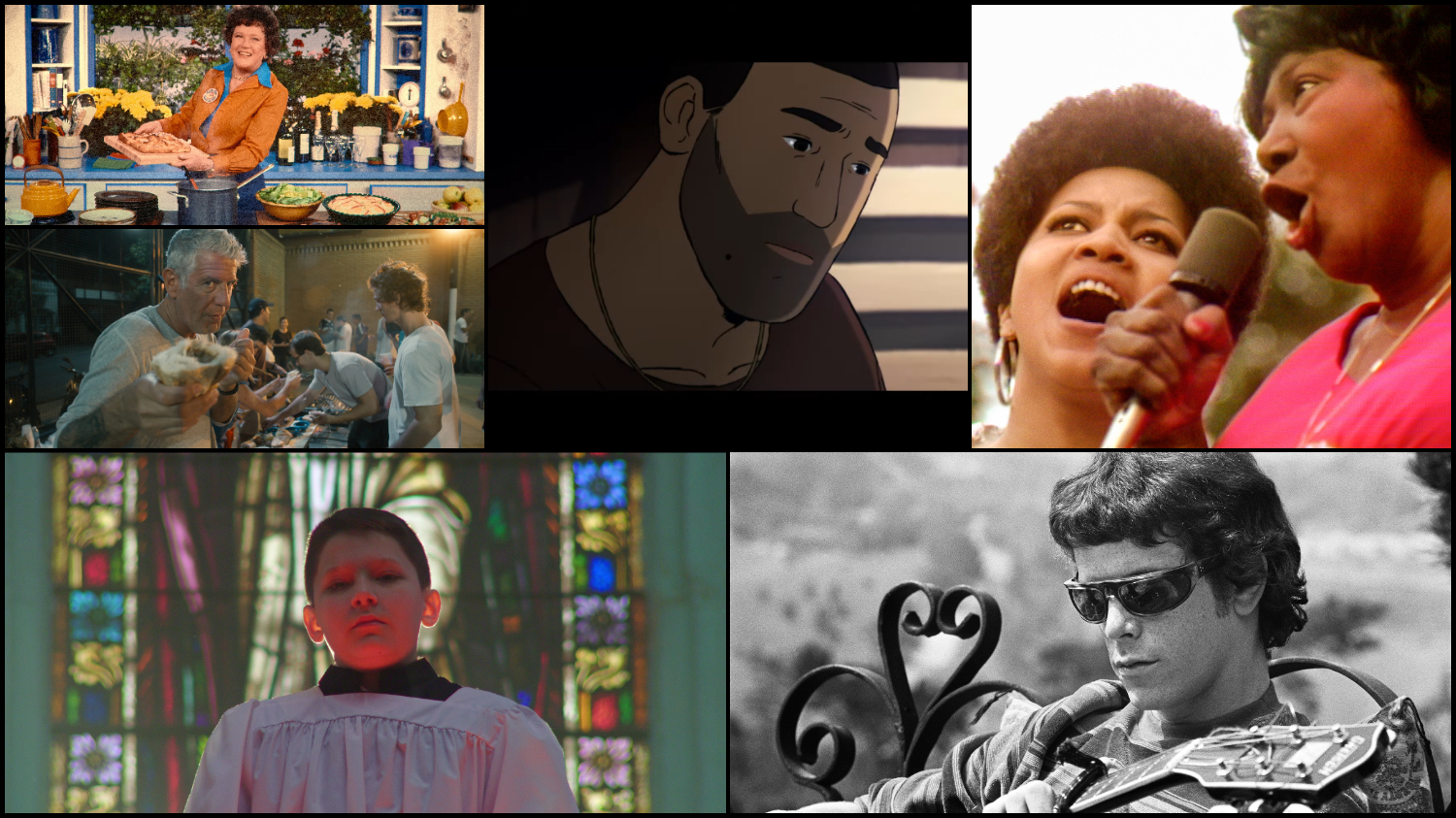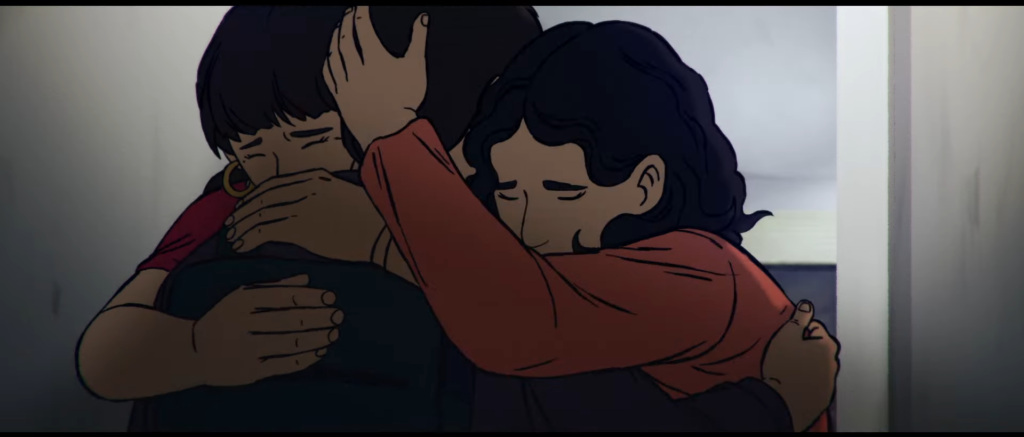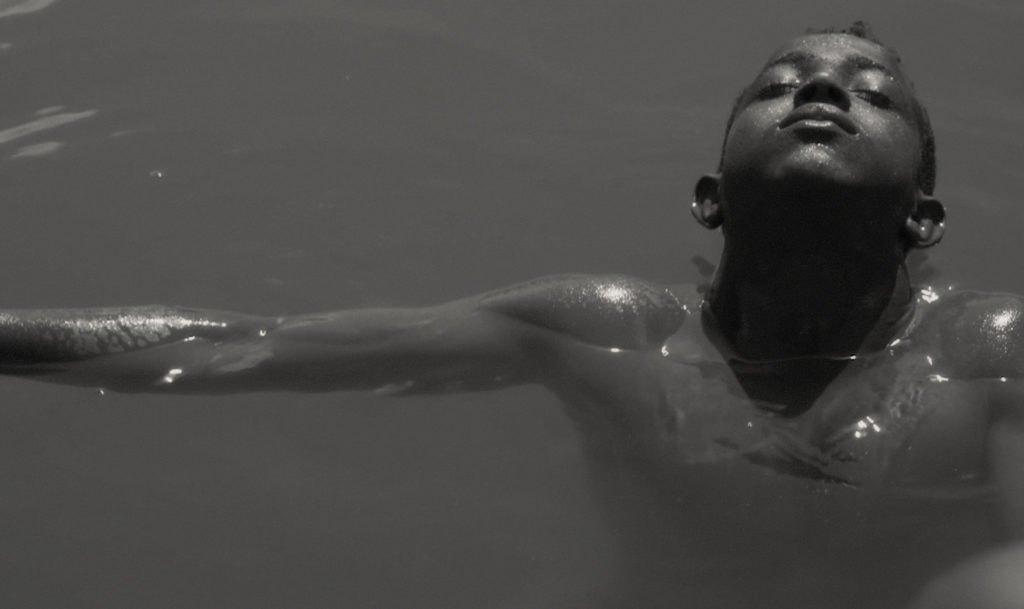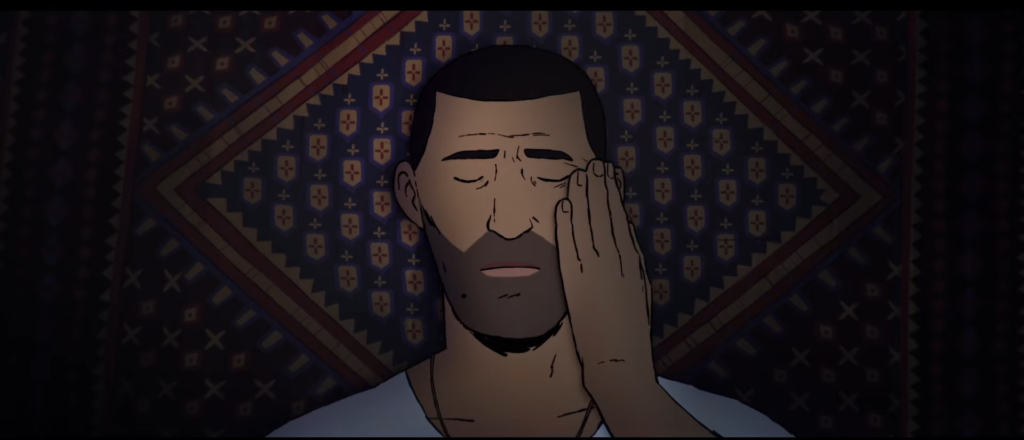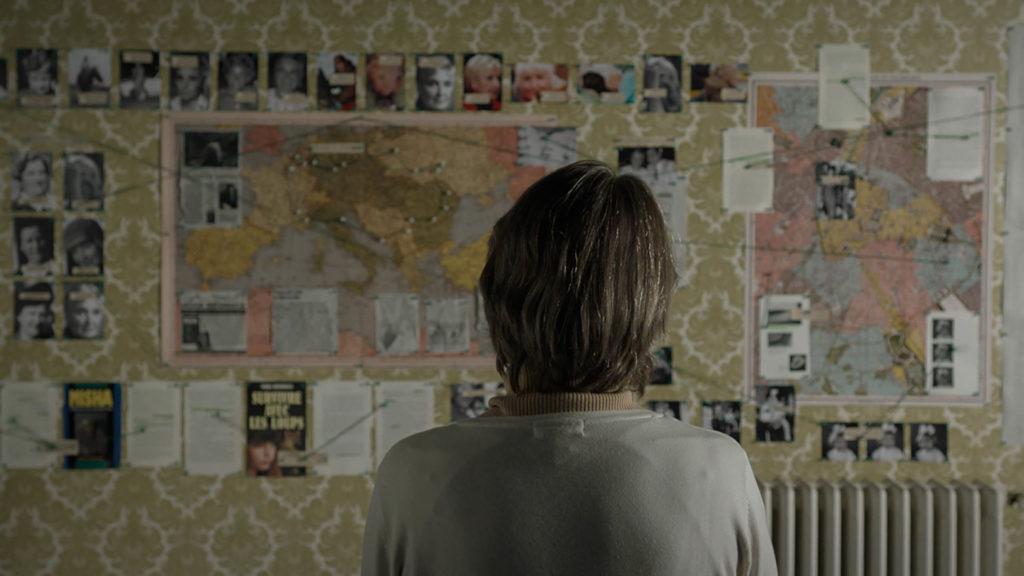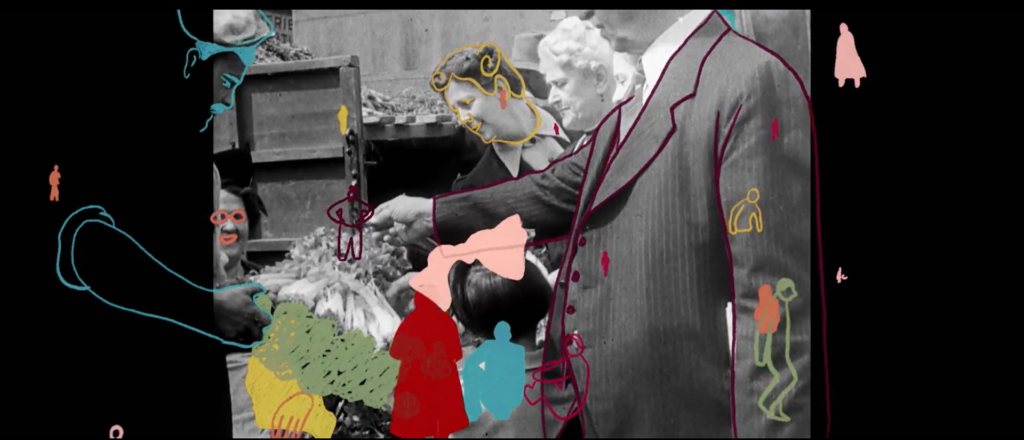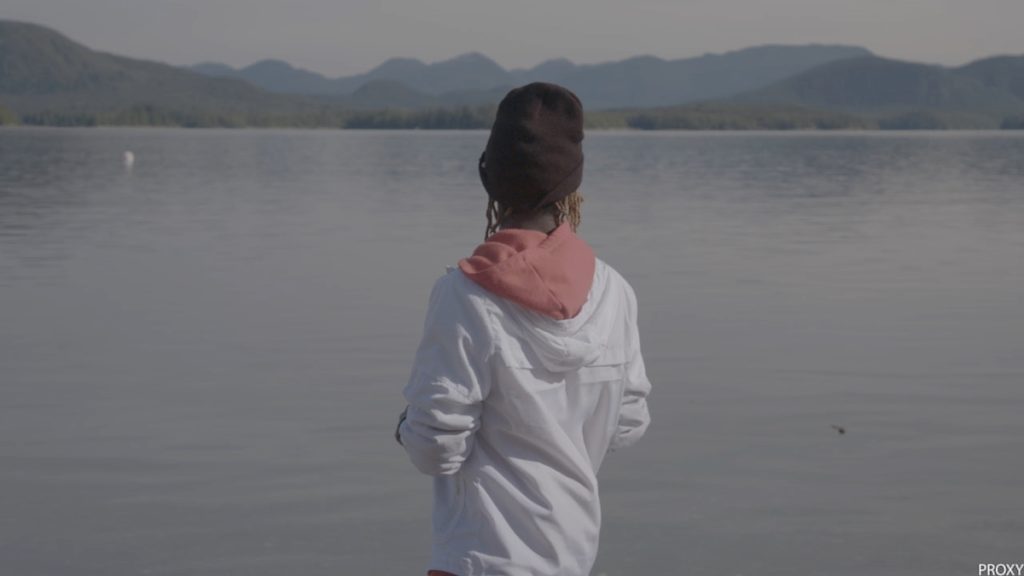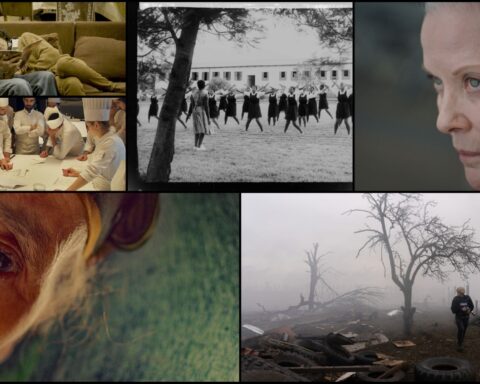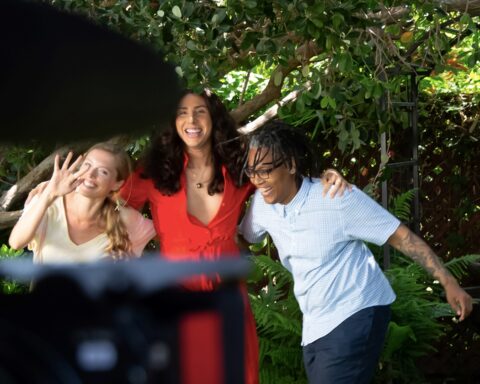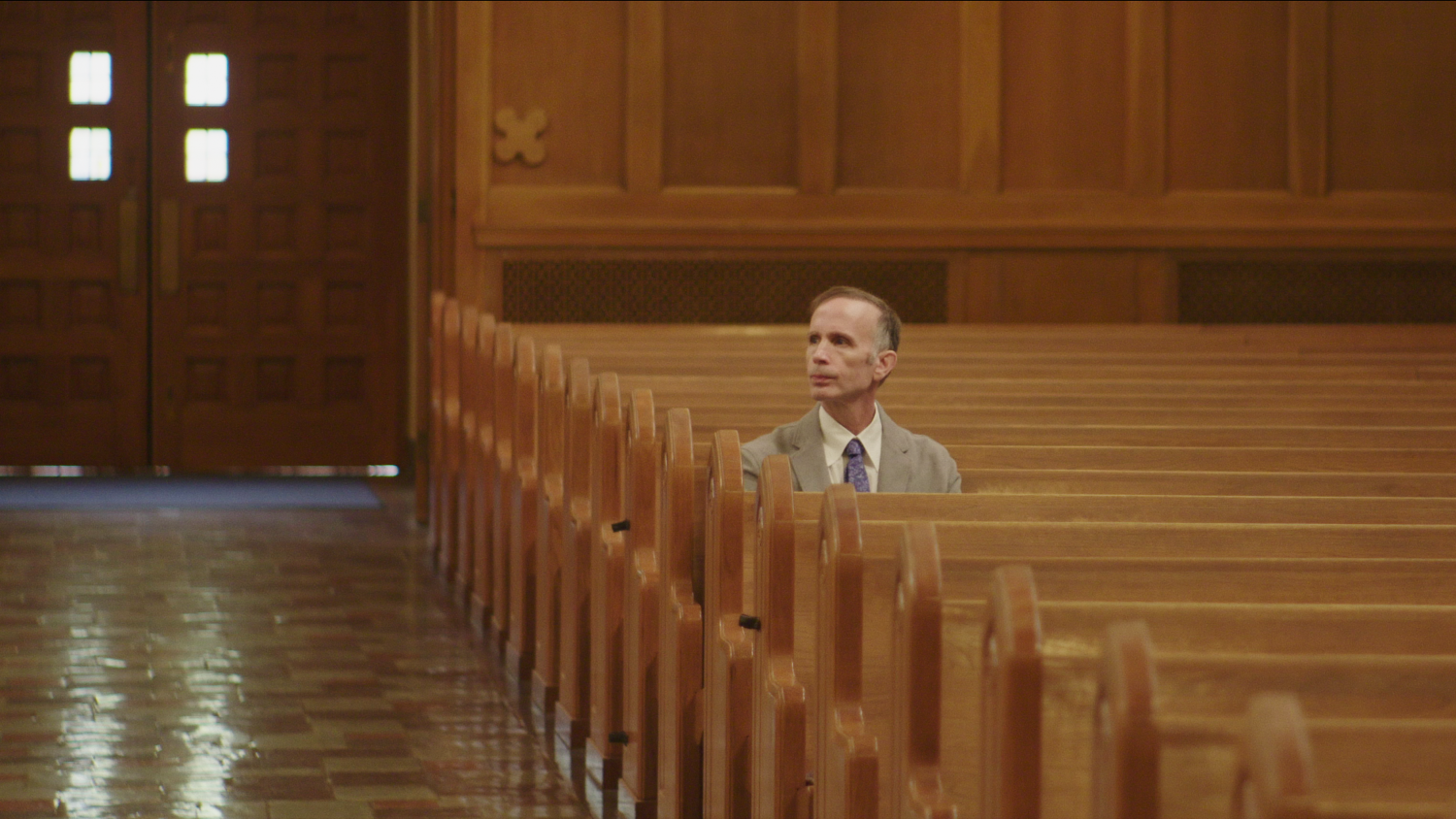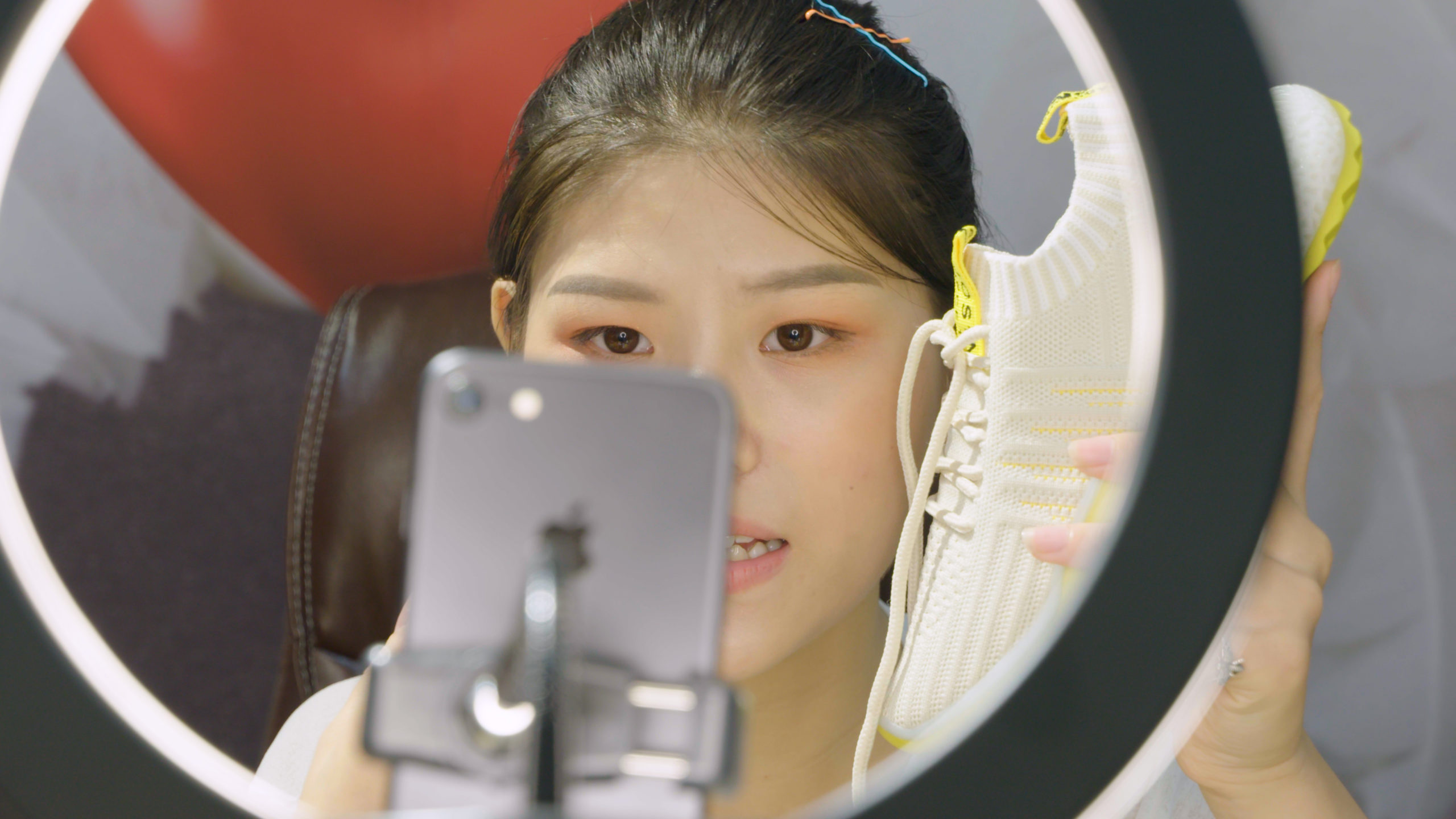The year is coming to a close and POV’s critics agree on the best documentaries of 2021. POV editor Marc Glassman and publisher Pat Mullen share the same choices for the top two docs of the year: Flee and Summer of Soul. These two films have dominated the doc circuit since their Sundance debuts and it’s easy to see why. They’re unique additions to the art form and expand new perspectives in non-fiction. POV’s critics also agree on The Velvet Underground and Julia as two of the top ten best–although there could have been considerable more overlap among the lists had we not wanted to spotlight as many films as we could.
Here are POV’s picks for the best documentaries of the year.
Marc Glassman’s Best Documentaries of 2021
1. Flee (dir. Jonas Poher Rasmussen)
Definitely agree with Pat: this is the POV film of the year. I’ve loved the animation documentary form since my friend Joyce Borenstein made her Oscar nominated short The Colours of My Father with the NFB nearly 30 years ago. Flee may be the best one yet, combining politics with art in such a meaningful way. (In select theatres.)
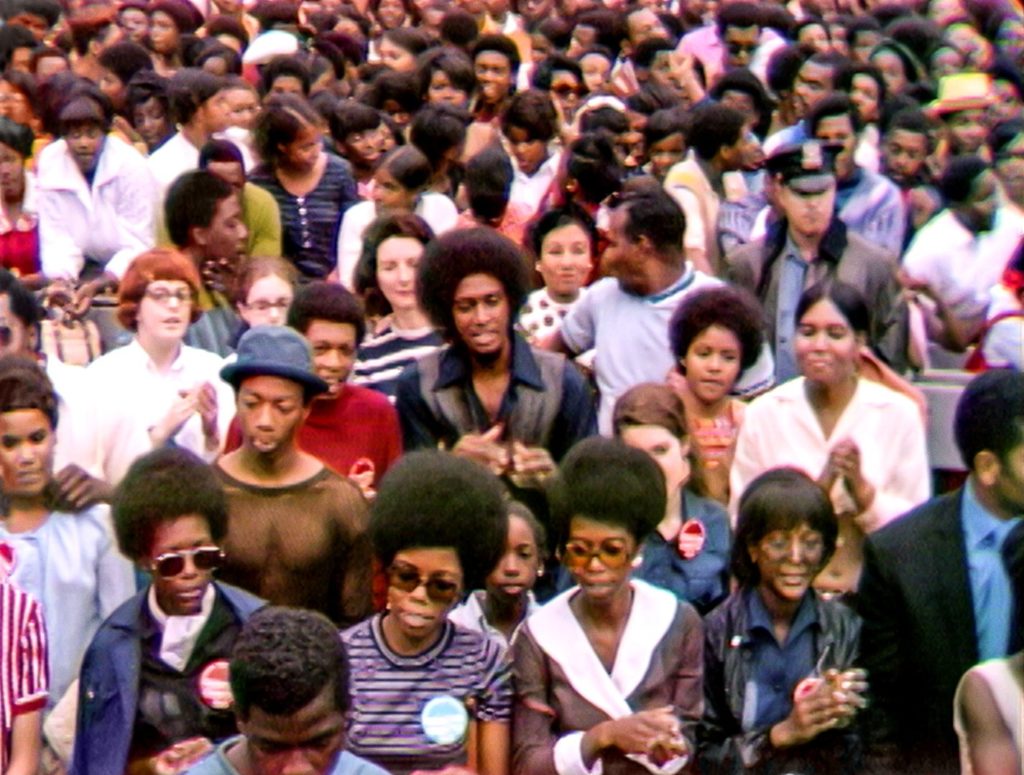
2. Summer of Soul (dir. Ahmir “Questlove” Thompson)
It’s still rare for a documentary to be a mainstream success but that’s what happened when Questlove and his team assembled the highlights from a 1969 series of concerts performed in what was called the Harlem Cultural Festival. During this period when Black Lives Matter has become a rallying cry for so many enlightened people around the world, Summer of Soul’s archival restoration and release became a critical part of the cultural conversation. Not only does the film feature the brilliant blues playing of B.B. King, the inflammatory jazz of Abbey Lincoln with Max Roach and the intense vocals and lyrics of Nina Simone, the presence of Jesse Jackson, Martin Luther King’s heir apparent, and the Black Panthers can be seen and felt on stage and in the crowd. It was a time when revolutionary rhetoric was voiced out loud—and it still speaks to audiences now. (Available on home video.)
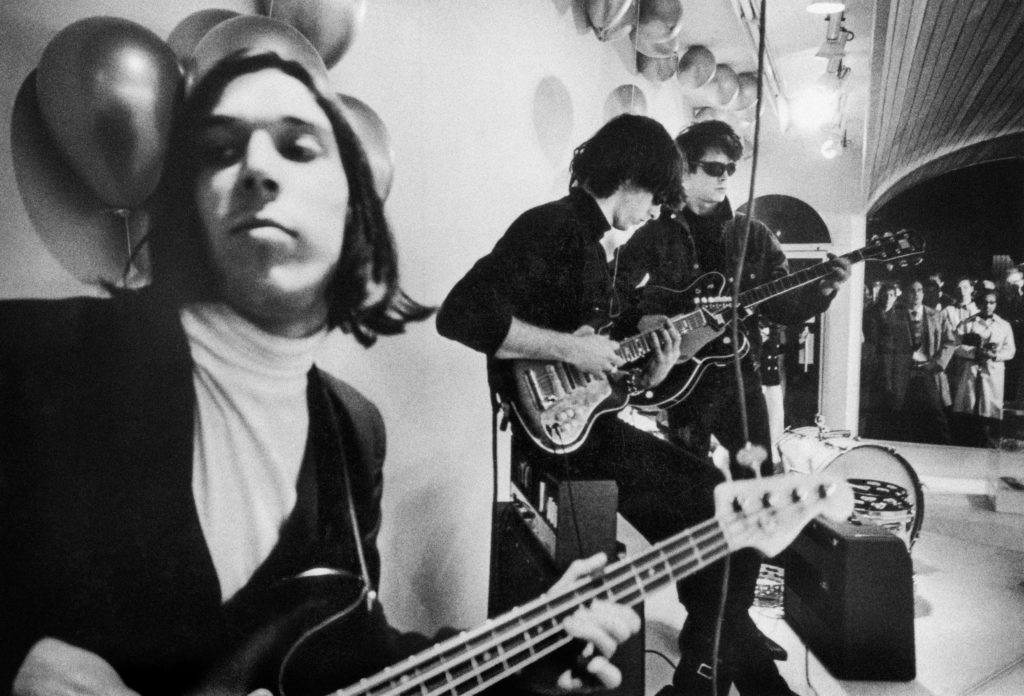
3. The Velvet Underground (dir. Todd Haynes)
Radical form meets radical content in Todd Haynes’ splendid appreciation of the Velvet Underground, a group that was far more than a Boomer band. Andy Warhol’s infamous banana cover for their first album wasn’t a stunt: the group led by Lou Reed and John Cale were all about art and culture, not top 40 radio. Haynes’ doc delves into the Velvet’s pre-history, when Reed and Cale hung out with poets and avant-garde musicians before meeting Warhol and being introduced to internationally glam girl Nico. Using archival footage and experimental film techniques, Haynes evokes the transgressive times in ‘60s New York when lightshows and industrial noise and performance art mattered to a community that accepted every form of sexual and gender expression. Haynes has made a brilliant film about a band that fully deserves its legendary status. (Available on AppleTV+.)
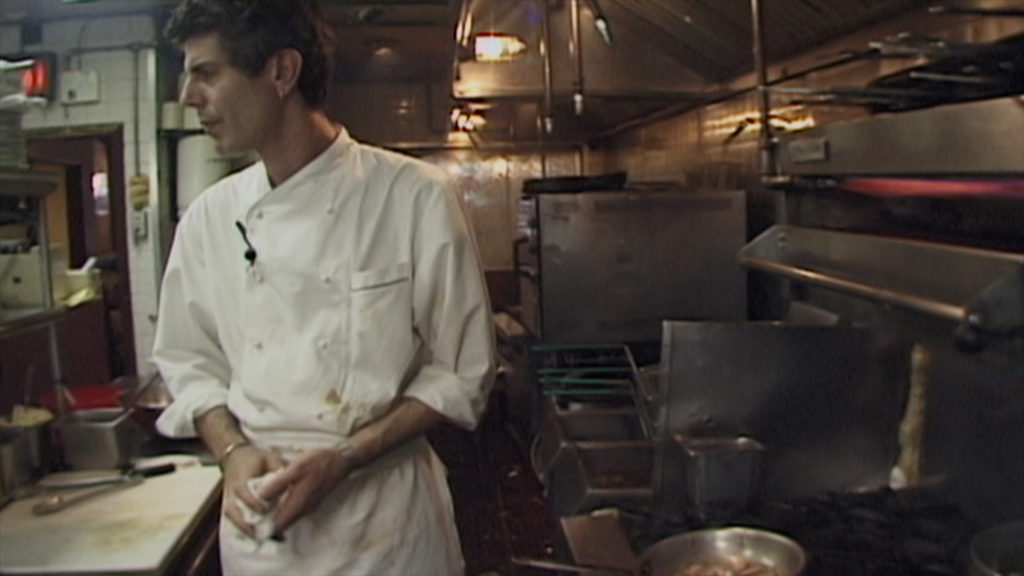
4. Roadrunner: A Film About Anthony Bourdain (dir. Morgan Neville)
First, let’s get one thing out of the way. Morgan Neville’s use of AI software to “deepfake” a few lines attributed to Anthony Bourdain doesn’t impair the authenticity of his portrait of the talented and deeply conflicted chef, writer and television host. Neville was searching for what made Bourdain tick and if he had to break a few eggs to do it, how else can you make a soufflé? Just as Neville had one thing he had to deal with to make his film—Bourdain’s suicide—any viewer has to decide whether the documentarian’s quest is sincere. It’s obvious that Roadrunner is a film made with passion and purpose and Neville’s great feel for story and character. (Available on home video.)
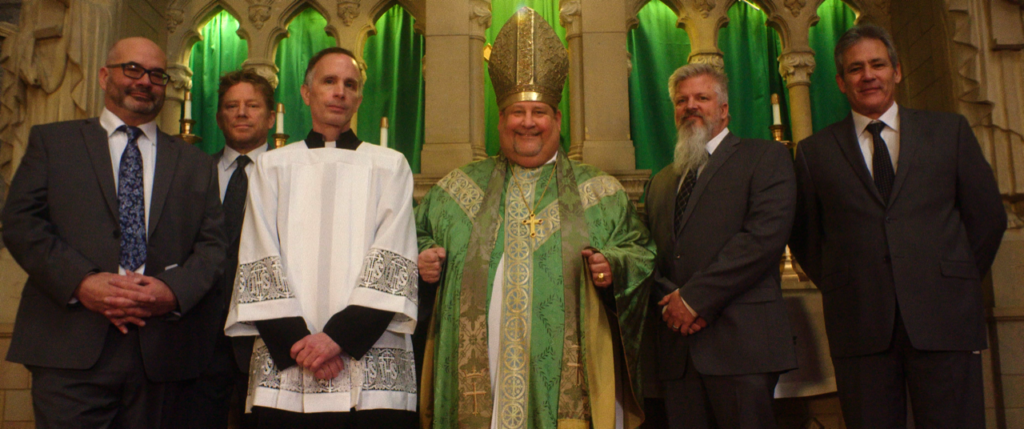
5. Procession (dir. Robert Greene)
It’s easy enough to praise Robert Greene for tackling the subject of child sexual abuse perpetrated by members of the American Catholic priesthood but what makes Procession remarkable is his ability to enable victims to repair themselves through drama and documentary. In his film, six survivors of pederasty attempt to work through their traumas by imaginative methods including recreations, new scenarios and actual returns to the scenes of the crimes. Greene takes on a role far different from the standard objective documentarian; in fact, he’s a participant who actively engages with them in their therapy. The film itself is a result of Greene encouraging them, with proper emotional and legal guidance, to explore the depths of their despair in order to heal themselves. With Procession, Greene has raised the stakes on what a documentary can be, emotionally, psychologically and intellectually. (Available on Netflix.)
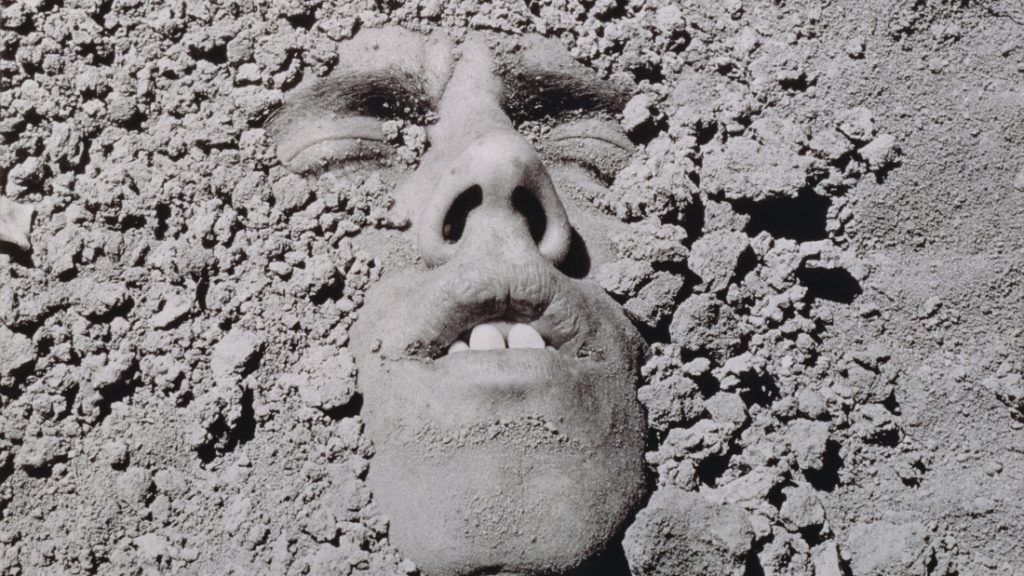
6. Wojnarowicz: F*ck You F*ggot F*cker (dir. Chris McKim)
A radical queer activist, David Wojnarowicz made brilliant revolutionary art in ’80s New York before the city became homogenized and gentrified. Initially a street artist, Wojnarowicz had a brief period of being a celebrity when his collage work was taken up by New York’s smart set, but his natural anger and subversiveness returned him to an outsider status all too quickly. Using archival footage and employing Fran Lebowitz among others to narrate his tale, McKim has made an edgy bio-doc of an intensely political artist whose controversial work exemplifies a time when being LGBTQ often meant a death sentence—and Wojnarowicz died of AIDS after watching his best friend and fellow artist Peter Hujar succumb to the same disease. (Available on home video.)
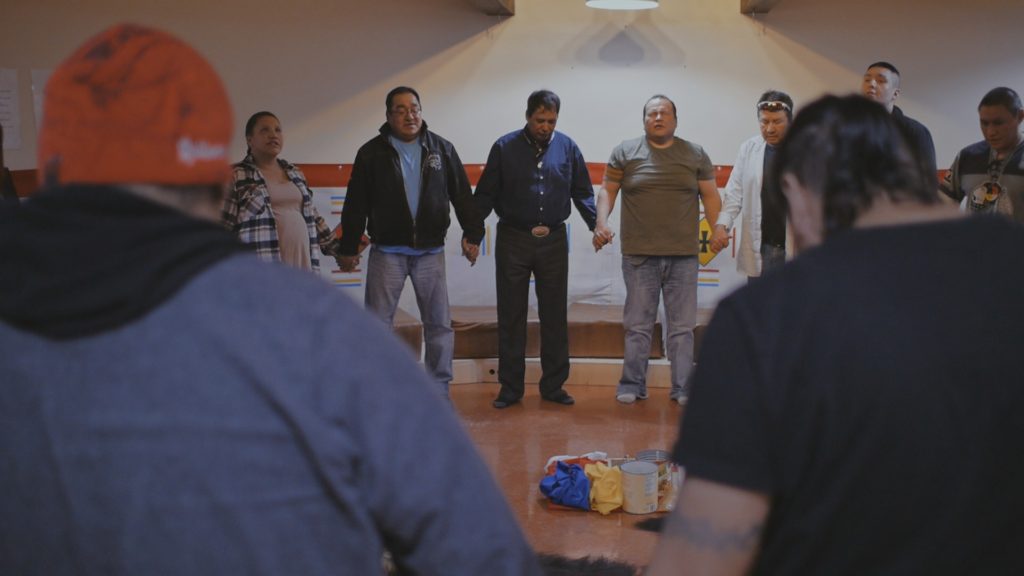
7. Kímmapiiyipitssini: The Meaning of Empathy (dir. Elle-Máijá Tailfeathers)
Set among the Blood (Kainai) Nation in Alberta, who are part of the Blackfoot Confederacy, Kímmapiiyipitssini is the kind of compassionate film that we can expect to see more of in the future. Director Elle-Máijá Tailfeathers, who is part Sami as well as Kainai, has made an ethical documentary about her community, which is dealing with substance abuse issues that assumed near crisis proportions over the past decade. The director’s mother, Dr. Esther Tailfeathers, is one of the trained individuals dealing with the abuse of opioids in the area, offering her—and the film—an entry into the pursuit of alternatives to the standard 12-step program rejected by many Indigenous people. Absolutely avoiding sensationalism, Tailfeathers’ film shows us a community dealing with highly sensitive issues with discretion and kindness. It’s a rare opportunity to see how a group can work together to attempt to eradicate a grave problem. (In select theatres.)
8. Faya Dayi (dir. Jessica Beshir)
As much a documentation of a dream as it is of reality, Jessica Beshir’s Faya Dayi evokes the nearly hallucinatory state created by khat, a leaf grown in the mountains of Ethiopia. Shot in luxurious black and white, the film places us among the Oromo youths who grow and cultivate the crop for their Sufi Muslim elders in Harar, an ancient walled city. Most dream of fleeing the country and its eternal hardships made worse by their treatment as separatists by the Ethiopian authorities but at least khat offers them a spurious salvation. The lustrous imagery of the hills and caves of Ethiopia’s highlands accompanied by drones and chanting offer the viewer an entry into “merkhana,” the euphoria created by khat in its users. Faya Dayi is a unique hybrid, a poetic film not to be missed. (Available on Criterion Channel.)
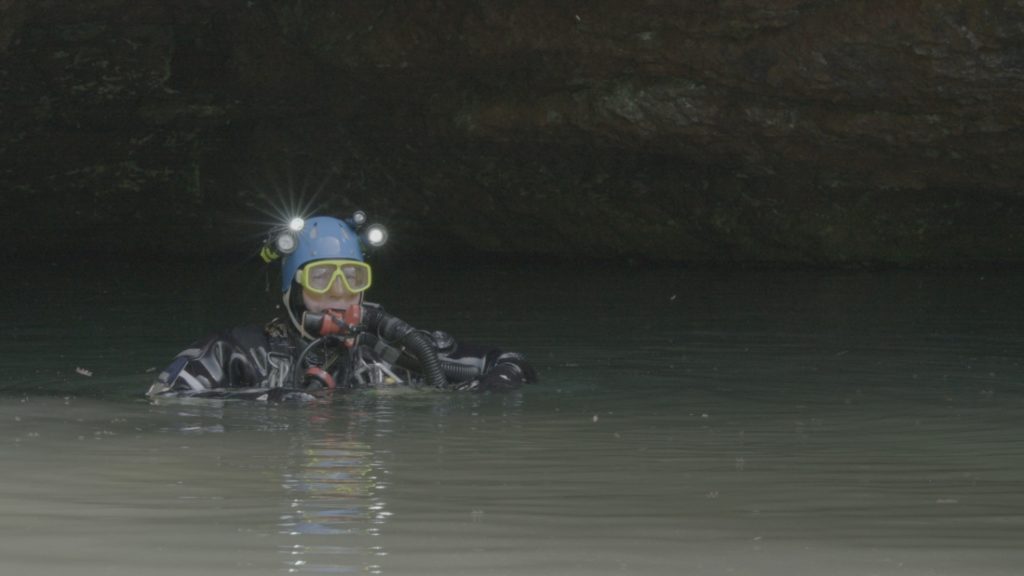
9. The Rescue (dir. Elizabeth Chai Vasarhelyi & Jimmy Chin)
The Rescue is one of the finest adventure stories ever to be filmed. Most will recall the astonishing tale of a Thai football youth team trapped in a vast cave, needing to be brought out to safety just as the monsoon season hit. The Rescue captures the pandemonium and chaos that enveloped the area around the cave as the Thai authorities were swiftly joined by a U.S. Air Force Special Tactics team and a hastily assembled crew of British and Australian diving experts in order to rescue the kids. The film skillfully shuttles between the media frenzy on the ground and visually impressive scenes in the cave, where the water is churning, and the rescue squad is assembled. Viewers will likely know what happens to the lads, but it hardly matters as we see the life and death dramas that took place as the boys were brought back home. (In select theatres.)
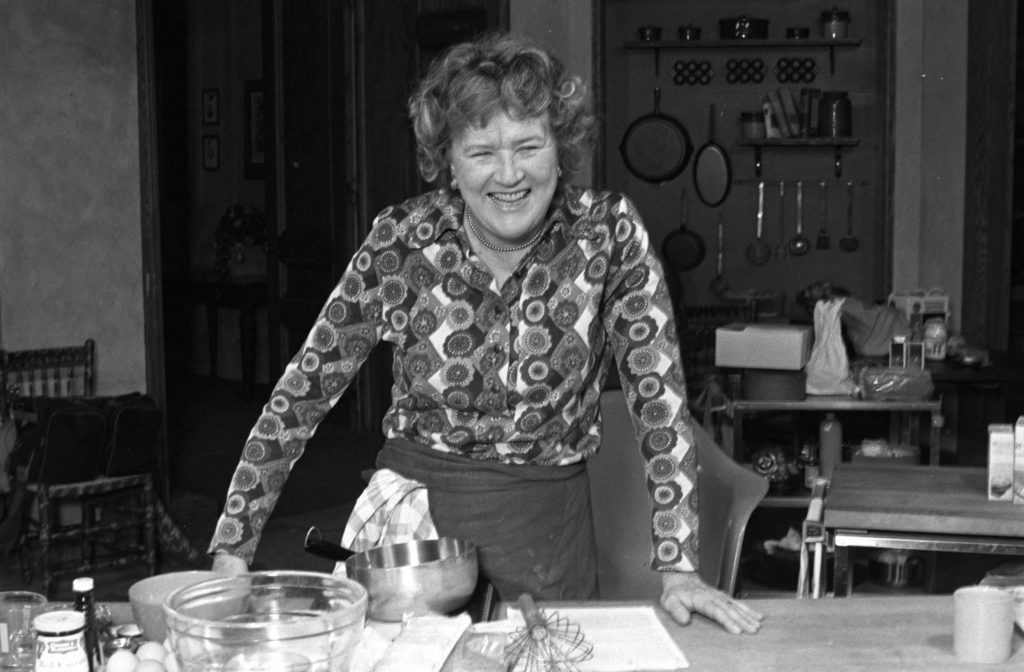
10. Julia (dir. Julie Cohen, Betsy West)
Totally agree with Pat that this is one of the finest docs of the year. Like Roadrunner, it goes far beyond the standard “foodie doc” to create a mesmerizing portrait of a great chef and an astonishing character, Julia Child. (In select theatres.)
Pat Mullen’s Top Ten Docs of 2021
1. Flee (dir. Jonas Poher Rasmussen)
This groundbreaking personal odyssey helps redefine what docs can be. Flee is a moving and therapeutic portrait of “Amin,” a gay Afghan refugee living in Denmark. He shares his story of escaping the Mujahedeen in Afghanistan to his long-time friend, filmmaker Rasmussen, and Amin’s tale of flight is one of a life spent running from shadows. As Rasmussen lets his friend unburden himself, Flee imaginatively transports audiences through Amin’s journey. Evocative animation takes a viewer to places that archive and verité footage ordinarily could not. In doing so, the animation evokes Amin’s personal and spiritual journey by conveying the road to self-love as the frames gradually restore the warmth of his joyous childhood years. Flee also underscores the ongoing threats to LGBTQ rights as Amin conceals himself from view. The protective cloak of animation stresses how much change still needs to come. (Now in theatres.)
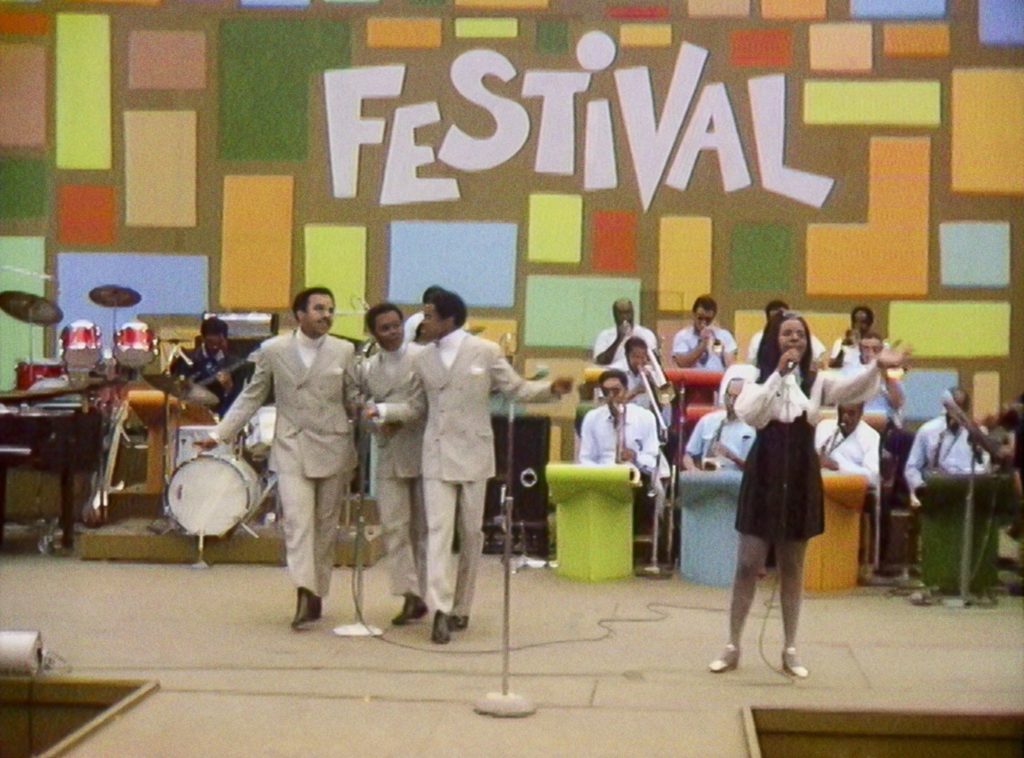
2. Summer of Soul (dir. Ahmir “Questlove” Thompson)
The concert of the year and a valuable excavation of history. Read more in Marc’s top ten. (Now on home video.)
3. A Night of Knowing Nothing (dir. Payal Kapadia)
Payal Kapadia’s extraordinary debut is an unclassifiable collage of poetic and political awakening. Some critics balked when it won the l’Œil d’Or at Cannes and argued it wasn’t a documentary. However, as the anonymous lovers of the doc narrate letters that the filmmaker “found” in a hostel, Kapadia explores the loss of innocence and a young woman’s emerging social conscientiousness amid a youth movement. The images are start and startling, both for their haunting compositions and the hypnotic lucidity with which they’re cut together. The spirit of Chris Marker is strong in this one. (Coming to theatres in 2022 – no Canadian distributor yet.)
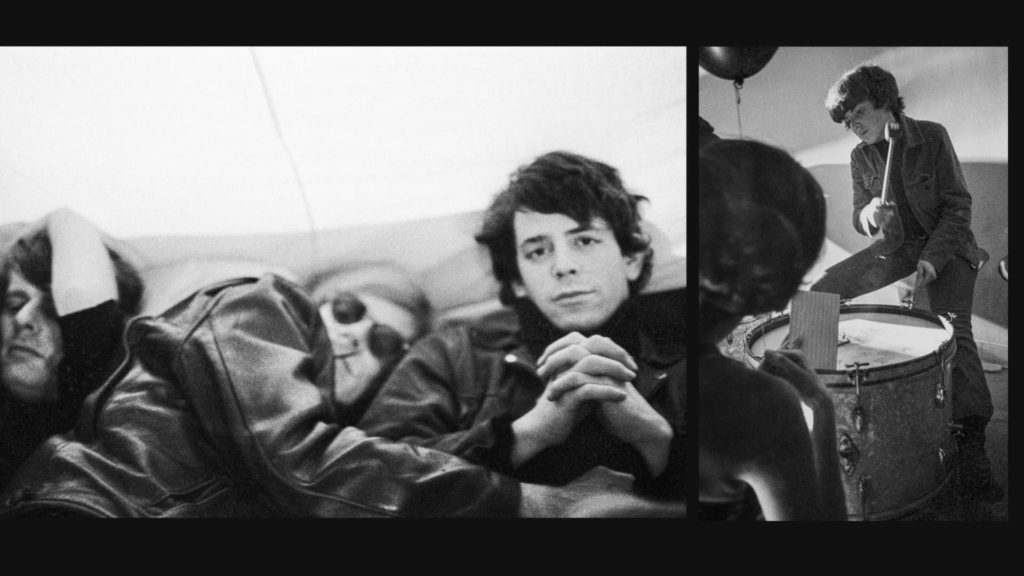
4. The Velvet Underground (dir. Todd Haynes)
Just when Boomer music docs seem formulaic, Haynes breaks the mould. Read more in Marc’s top ten! (Now on AppleTV+)
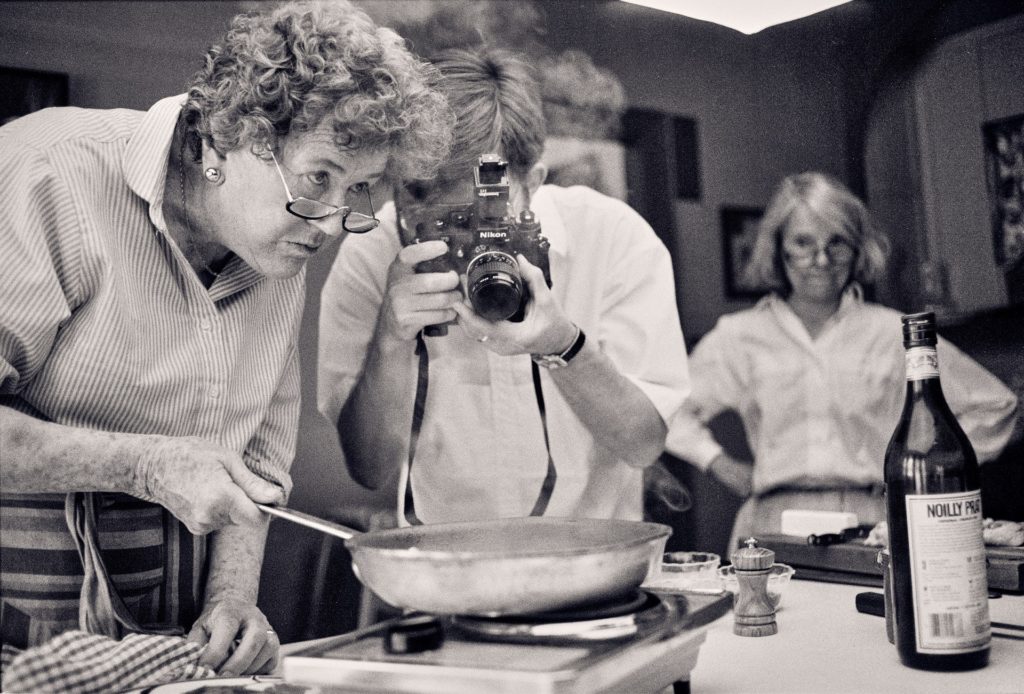
5. Julia (dir. Julie Cohen, Betsy West)
I like Julia as much as Julia Child loved butter. RBG duo West and Cohen craft an invigorating celebration of food and feminism as they explore the life and work of the chef who roused American cuisine from its freezer-aisle slumber. Julia captures Child’s effervescent joie-de-vivre with wonder. Food docs as good as this one understand that the mouth-watering grub isn’t the main attraction. Julia salutes the joy of preparing a meal for loved ones, and the time spent gathered around the table. This beautiful doc pairs nicely with friends, French take-out (truffle popcorn will do), and lots of wine. (In select theatres.)
6. Misha and the Wolves (dir. Sam Hobkinson)
Misha and the Wolves spins a twist-a-minute jaw-dropper about a woman named Misha, her captivating story of surviving the Holocaust, the publisher who bought her story, and the concentric circles of the story-within-a-story. One’s allegiance shifts by the second as perspectives compete à la Rashômon. Revelations force one to reconsider the motivation of each speaker anew. The direction is precise and with a dramatic flair that matches Misha’s ability to hook an audience with a good yarn. It’s a hugely entertaining essay about the power of storytelling—and the responsibility that comes with spinning a tale. (Now on Netflix.)
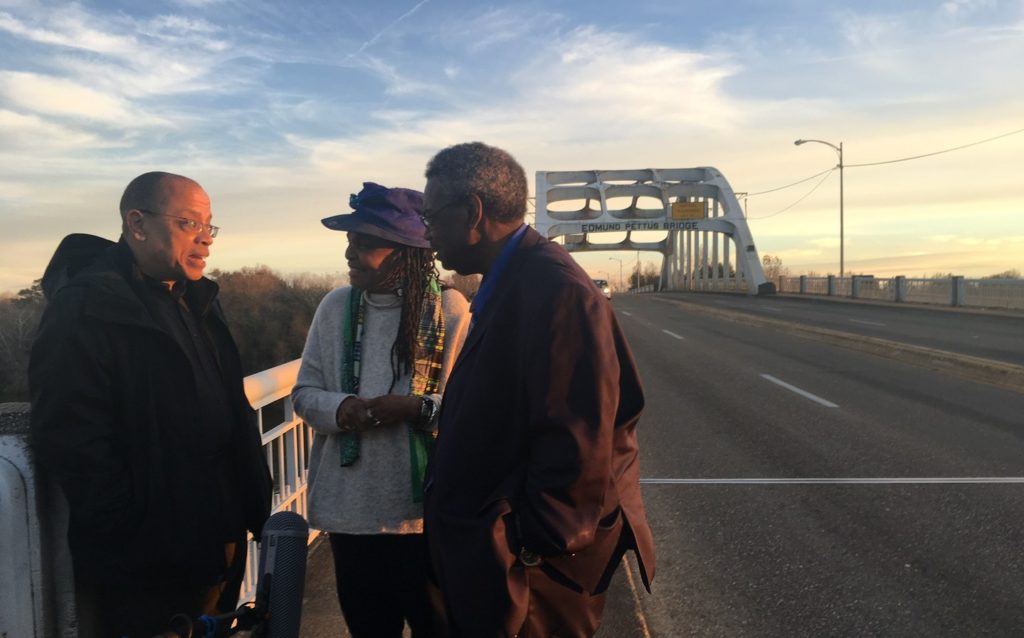
7. Who We Are: A Chronicle of Racism in America (dir. Emily Kunstler, Sarah Kunstler)
One could call Who We Are “the An Inconvenient Truth” of racism in America, but that might shortchange a very powerful doc. While directors Emily Kunstler and Sarah Kunstler adopt a mode similar to Davis Guggenheim’s conceit of filming Al Gore giving a PowerPoint about environmentalism, their choice to document ACLU deputy legal director Jeffery Robinson’s 2018 Juneteenth speech is extremely effective. Who We Are intercuts Robinson’s compelling direct address to the crowd with footage of his travels in America where he speaks from the heart to everyday people about the state of the nation. It’s a compelling essay on the slow road to change in a nation with racism embedded violently within its DNA. (Opening in theatres in February.)
8. Archipelago (dir. Felix Dufour-Laperrière)
If Winnipeg by way of Guy Maddin is your idea of an adventure, then Archipelago is the ticket for you. This exploration of Quebecois mythology and landscapes both real and imagined considers both the practice and perils of national mythmaking. Director Dufour-Laperrière ingeniously rejects a singular voice with which to tell Quebec’s story. Instead, a dozen animators conjure their ideas of Quebec. Archipelago navigates the dark waters of fact and fiction, embracing the point at borders dissolve into water and are carried out to sea. (In select Quebec theatres.)

9. Listening to Kenny G (dir. Penny Lane)
One could call Who We Are “the An Inconvenient Truth” of racism in America, but that might short change a very powerful doc. While directors Emily Kunstler and Sarah Kunstler adopt a mode similar to Davis Guggenheim’s conceit of filming Al Gore giving a PowerPoint about environmentalism, their choice to film ACLU deputy legal director Jeffery Robinson’s 2018 Juneteenth speech is extremely effective. Who We Are intercuts Robinson’s compelling direct address to the crowd with footage of his travels in America where he speaks from the heart to everyday people about the state of the nation. It’s a compelling essay on the slow road to change in a nation with racism embedded violently within its DNA. (Now on Crave.)
10. One of Ours (dir. Yasmine Mathurin)
One of Ours offers the most complicated family make-up one could imagine. Mathurin’s key subjects are Haitian-born Canadians adopted into a mixed Heiltsuk/settler family that is further complicated by dynamics of queerness and polyamory. That’s a lot to take on in a story, especially when the question of who has the right to tell a story is more sensitive than ever. Yet Mathurin pulls it off remarkably. The vulnerability and openness that the Wilson family displays speaks to their genuine confidence in Mathurin. This intimacy is the product of mutual respect, relationship-building, and inherent interpersonal skills. (Coming to CBC Gem in January.)
Honourable mentions: Attica, Becoming Cousteau, Kímmapiiyipitssini: The Meaning of Empathy, Mayor Pete, Procession, The Rescue, Roadrunner: A Film About Anthony Bourdain, Val, The Velvet Queen, Wojnarowicz: F*ck You F*ggot F*cker, zo reken.




